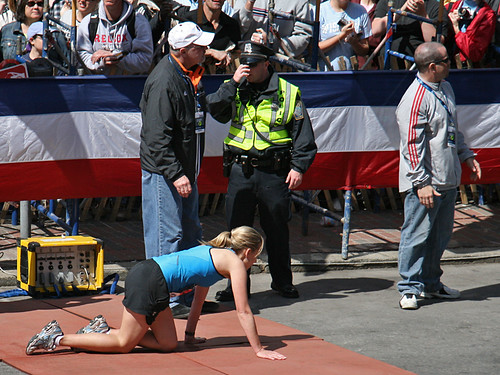A Note for Those Finishing Long Races
By Amy Barr, Latinist and Gardener
Sprinters know whether they'll be in range to win within the first couple of seconds of a race. Weightlifters know instantly if they'll tackle the challenge set before them. Why do marathon runners force themselves to crawl across finish lines and why do mountain climbers drag themselves wounded and weary to the summit even though they knew well in advance that they weren't going to take first place? The prize of endurance is completion. Completion is often quite enough of a prize.
Perfectionists will often chime, “whatever is worth doing at all, is worth doing well.” This, too, is also true but with a few caveats. Some use this adage as an excuse to quit whenever one feels a job has been too poorly done. For most of us, the least qualified judge of our own worthiness is ourselves.
I’ve seen perfectionism rob many people of their prize of getting things done. In my own profession I see otherwise competent students take a low score one rough week and then I see them give up. The curse of perfectionism typically effects 5-10% of my students and the results are always difficult to watch. I have seen a student give up because she scored a single 89% during a semester of earning upper 90% or above. One Latin student abandoned the class after a mediocre midterm only to discover a month later that he had earned a perfect score on the National Latin Exam. In graduate school I meet a man who had been “working” on his doctoral dissertation for over a decade but could never get it perfect enough to finish.
Few things in life are sprints. Most of what we humans accomplish work out more like a marathon or a rugged mountain climb. We are far more likely to crawl across the finish line or trudge to the summit with a bruise or two than we are to flawlessly sprint to the win. Also just like an endurance race, few adoring fans wait at the end to cheer us on as we finish the long haul.
Doing things well is a worthy goal but a poor excuse. Life is far too short to give up whenever one’s hope of perfection fades. When you trip over your own feet, expect to hit the pavement. This is normal. The next part of the endurance race makes you exceptional in a crowd of people who give up too soon. The reward comes to those who stand up, dust off, tie shoelaces, and keep going (consider that skinned knee and embarrassed ego as a badge of courage). Finishing is its own reward. There is greatness in simply getting things done.





